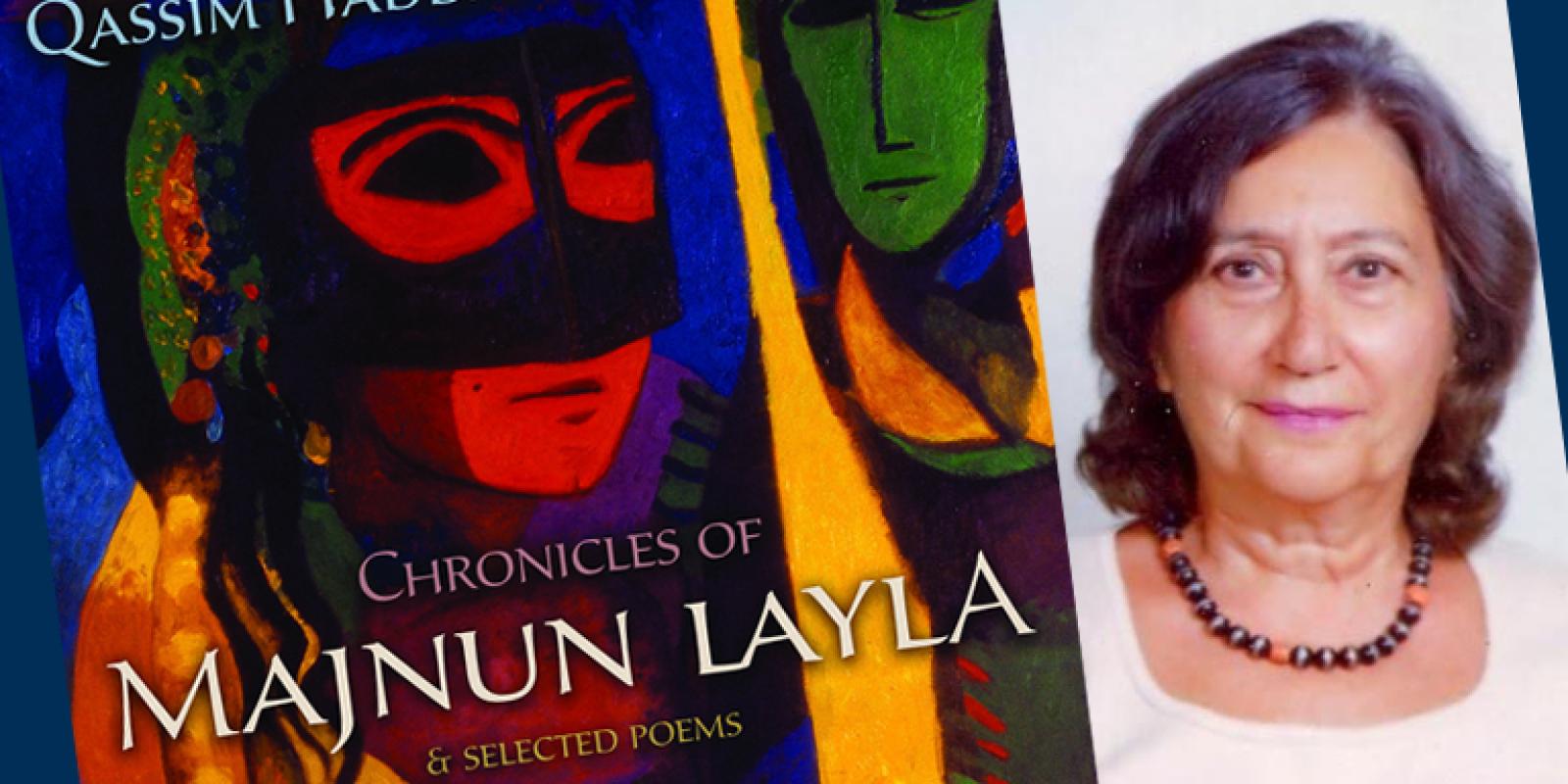
Faculty Awarded for Poetry Translation, Breaking Cultural Barriers
Since the sixth century, Arab writers have brought to life their thoughts, ideas and impressions through poetry. However the Arab world’s robust poetic tradition is not well-known by the English-speaking world, in part because of the challenges of translating the rich Arabic language into English in a way that maintains the artistic essence of poetry, but also because of rising cultural and political tension between the West and the Arab world.
Today, Ferial Ghazoul, English and comparative literature professor, and John Verlenden, former writing instructor at the Department of Rhetoric and Composition, are working to break down those cultural barriers. In recognition of their efforts, Ghazoul and Verlenden were recently awarded the Sheikh Hamad Award for Translation and International Understanding for their translations of Chronicles of Majnun Layla and Selected Poems of Qassim Haddad.
Sheikh Hamad Award for Translation and International Understanding
Founded in 2015, the Sheikh Hamad Award for Translation and International Understanding is an international prize recognizing excellence in translation. The award, based in Doha, Qatar, is run by an independent board of trustees, impartial panels of judges and a professional steering committee who seek to cultivate cross-cultural dialogue and understanding through literature.
“The award validates our collaborative work and offers a model of literary translation that is responsible to both the source language and the target language,” said Ghazoul. “The cooperation between us, an Arab scholar of comparative literature and an American poet who has immersed himself in Arab culture and literature, is the future trend for successful translation of literary classics. We strove to preserve the poetic sophistication of Qassim Haddad while making sure the text reads beautifully in English.”
Why Majnun Layla
Ghazoul and Verlenden chose to translate Qassim Haddad’s Chronicles of Majnun Layla, both for its superb modern rendering of the legend of Majnun Layla and the challenge of making their English translation as poetic as the original Arabic. “We live in a global culture, and translation is indispensable for mapping the cultural geography of our world. In this global scene, the presence of Arabic literature contributes to appreciation of the vibrant culture of our region,” Ghazoul explained, adding that the media often presents the negative aspects of the Middle East, “but there are brilliant contributions by contemporary Arabs that are either ignored or marginalized. Our translation plays a role in international understanding, and it adds to the treasury of world literature.”
In 2010, Ghazoul and Verlenden also won a grant from the National Endowment for the Humanities for the translation of the works of Bahrain’s best-known poet, Qassim Haddad. Born in 1948, Haddad’s reworking of the Majnun Layla poem and his copious output, ranging from aphoristic short poems to longer, free verse experiments, have led to international recognition, now including Ghazoul's and Verlenden’s award for the English translation that was published by Syracuse University Press in 2014.
Abu Nawas, Future Translation Work
Looking ahead, the two scholars have set their sights on Abu Nuwas. “We would like to translate an exceptional classical poet, Abu Nuwas, who is also a brilliant iconoclast known for themes that go against the grain," said Ghazoul. "His poetry and his non-conformist way of life have entered him into the realm of legends and folklore."
Through this project, Ghazoul aims to have Abu Nuwas’s poetry appreciated not only by scholars of Arabic, but also by lovers of poetry. “Classical as he is in terms of his period (c. 750-815), he exudes avant-garde sensibility, which would be a challenge and a pleasure to render into English,” she noted.
